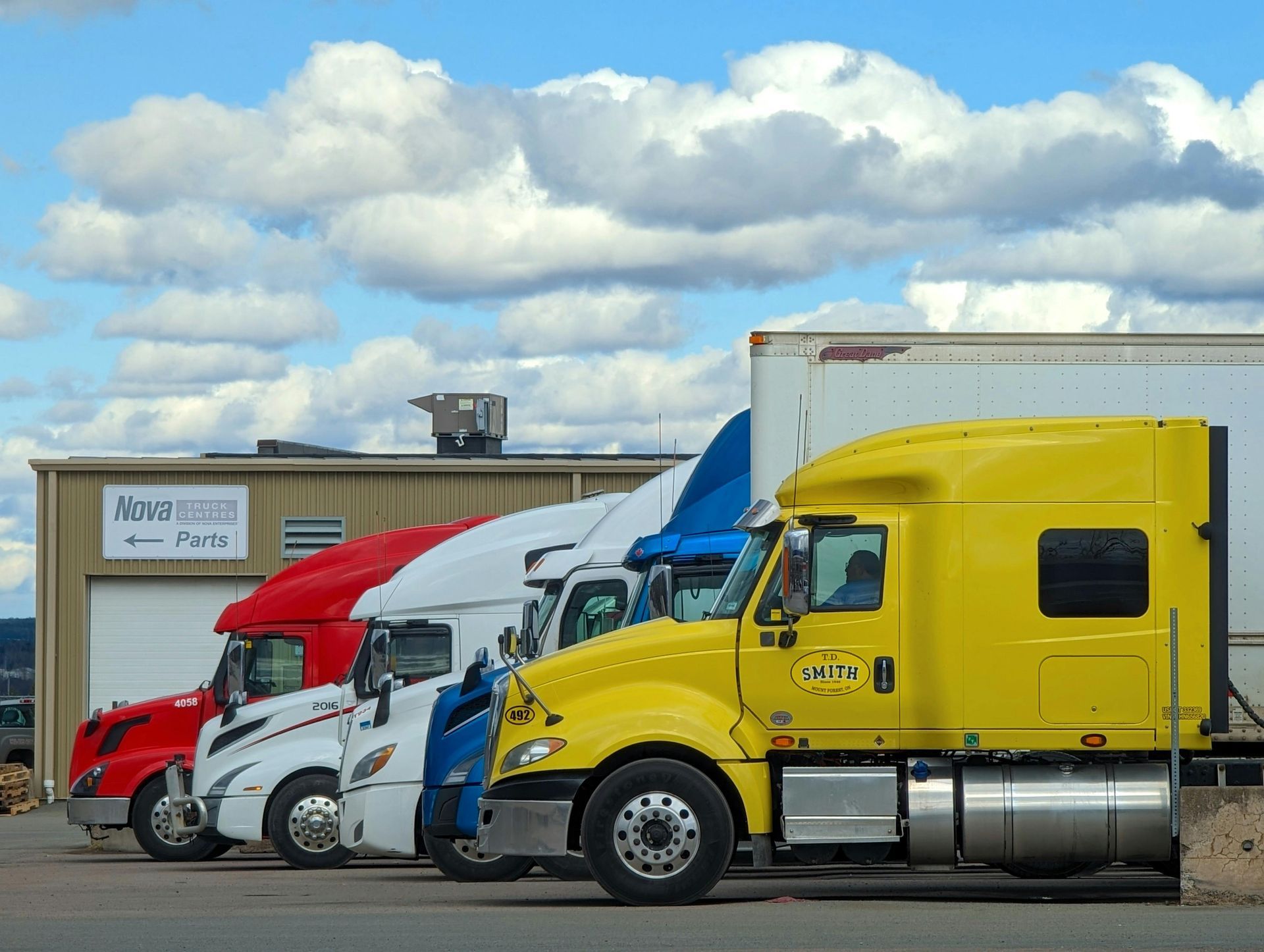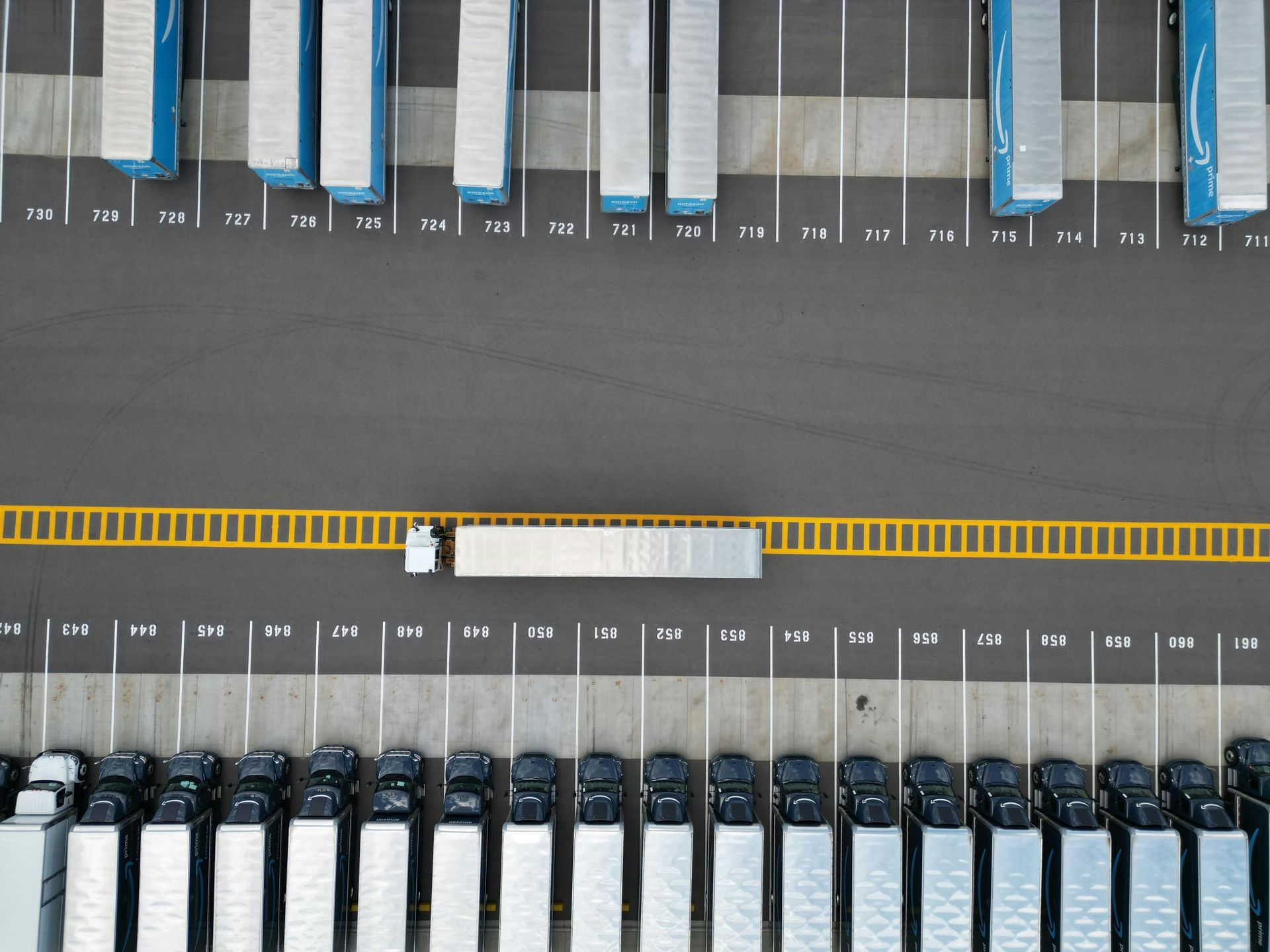Capital Cost Allowance For Trucks And Trailers: Optimize Before Year-End

When you’re an owner-operator in Canada, your truck isn’t just a vehicle—it’s your livelihood. Every mile driven, every load hauled, and every repair handled directly impacts your bottom line. But here’s the part many truckers overlook: your truck and trailer aren’t just expenses, they’re also powerful tax tools.
That’s where Capital Cost Allowance (CCA) comes in. How you manage your CCA before December 31 can make a huge difference—either leaving money on the table or keeping thousands in your pocket.
At Truckers Pro CPA, we’ve seen time and again how a little planning around CCA helps drivers lower taxable income, free up cash flow, and prepare their business for the year ahead. Think of it as preventative maintenance—not just for your rig, but for your financial engine.
Why CCA Matters for Owner-Operators
Unlike day-to-day expenses like fuel or meals, trucks and trailers are considered long-term assets. The Canada Revenue Agency (CRA) doesn’t let you deduct the full purchase price in one shot. Instead, you claim depreciation gradually through Capital Cost Allowance (CCA).
Here’s why it matters:
- Tax Savings: Properly timed claims lower your taxable income.
- Cash Flow Management: Strategic deferrals can balance high and low-income years.
- Growth Planning: Knowing your CCA position helps decide when to repair, upgrade, or buy new.
The key? Don’t wait until tax season to figure this out. By reviewing now, you’ll avoid rushed choices and missed opportunities.
Step 1: Know Your CCA Classes
The CRA assigns trucks and trailers to specific asset classes, each with its own depreciation rate:
- Class 16: Heavy trucks and tractors, usually at 40%.
- Class 10 or 10.1: Passenger-type vehicles, usually 30%.
- Trailers: Generally, fall under Class 10 at 30%.
Why this matters: the class determines how much of the asset’s cost you can deduct each year. For example, that $150,000 rig in Class 16 could generate a $60,000 deduction in the first year alone—if planned properly.
👉 Quick Tip:
The
half-year rule applies to the year you buy an asset, meaning only half of the CCA is allowed in that first year. Timing your purchase before or after December could drastically change your deduction.
Step 2: Time Purchases Strategically
Here’s where strategy comes in. Should you buy now or wait until next year?
- Buy Before December 31: Claim half-year CCA this year, lower your current tax bill, and reduce immediate taxable income.
- Buy in January: Preserve higher income deductions for next year, especially if you expect stronger earnings.
Example:
An Alberta-based long-haul driver bought a new trailer in December 2023. Even with the half-year rule, he claimed nearly $9,000 in deductions that year. If he’d waited until January, his 2023 tax bill would’ve been thousands higher.
Step 3: Track Repairs vs. Replacements
Not everything needs to be capitalized. Distinguishing between a repair (deductible expense) and a replacement (capital asset) is crucial:
- Repairs: Regular maintenance, like brakes, tires, or engine tune-ups, can be deducted immediately.
- Replacements: Major upgrades such as new transmission or trailer body are added to the CCA pool.
👉 Misclassify these, and you risk losing deductions—or worse, sparking a CRA audit.
Step 4: Maximize Deductions Without Over-Claiming
While it’s tempting to claim the highest possible CCA every year, that’s not always smart. Over-claiming in a lower-income year could mean losing valuable deductions when your income is higher.
The smarter play? Adjust your claims based on:
- Current vs. expected future income
- Planned equipment purchases
- Long-term retirement contributions
It’s about balance—lowering taxes now without sacrificing tomorrow’s deductions.
Step 5: Connect CCA With Broader Year-End Planning
CCA doesn’t live in a vacuum. It ties directly into your bigger year-end strategy:
- GST/HST Planning: Input credits align with the timing of purchase.
- RRSP or TFSA Contributions: Lower taxable income pairs well with maximizing savings.
- Cash Flow Forecasting: Anticipating deductions helps avoid year-end surprises.
Think of CCA as one cog in the machine. When it works in sync with other tax moves, your entire business runs smoothly.
Real Story: Turning a Tax Burden Into a Tax Advantage
One of our clients, a B.C.-based owner-operator, faced a tough decision in fall 2023. His truck needed major work, and he was debating a costly rebuild versus buying new. With year-end around the corner, we ran the numbers:
- A December purchase meant he could claim the half-year CCA right away.
- The deduction lowered his taxable income enough to free up cash for RRSP contributions.
- Net savings: nearly $11,000 in taxes and retirement funding combined.
His words:
“I thought buying a truck was just a cost of doing business. Now I see it’s a tax strategy too.”
How Truckers Pro CPA Helps You Optimize CCA
Navigating CRA rules isn’t easy—especially when you’re juggling deliveries, invoices, and logbooks. That’s where we step in.
At Truckers Pro CPA, we help Canadian drivers:
- Identify the best timing for truck and trailer purchases
- Classify expenses properly (repairs vs. capital assets)
- Strategically manage deductions year over year
- Integrate CCA into complete year-end and retirement planning
We’re not just
accountants—we’re financial co-drivers keeping you penalty-free,
tax-smart, and road-ready.
Final Mile: Don’t Leave Money on the Table
Your truck isn’t just a vehicle—it’s the backbone of your business and your most important asset. That’s why the way you handle Capital Cost Allowance (CCA) before year-end can make or break your bottom line. Managed carelessly, your rig becomes a tax drain. Managed strategically, it becomes a tool to reduce taxable income and free up real cash flow.
Timing plays a huge role here. Choosing whether to purchase, repair, or defer until January isn’t just a business decision—it’s a tax strategy that could save you thousands. Those savings aren’t abstract; they translate into fuel money, retirement contributions, or extra security for the slow season.
By planning ahead—well before the December crunch—you’re setting yourself up to roll into 2025 with fewer tax headaches, accurate records for CRA, and more cash in your pocket to keep your business moving forward.
Popular Posts

Marcel Coviciu
Marcel began his career working in operation and management for a major tire manufacturer. Then he transitioned into trucking, running his own business for 15 years and ultimately working his way through accounting school. Fascinated with the way logistics and financial management impact the profitability of businesses, Marcel loves sharing his expertise with other truckers.















